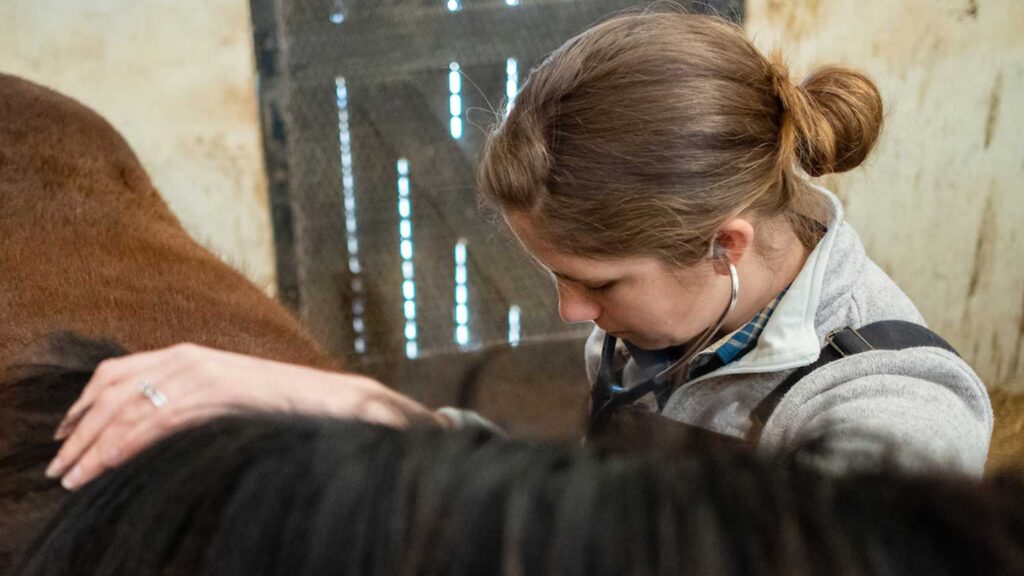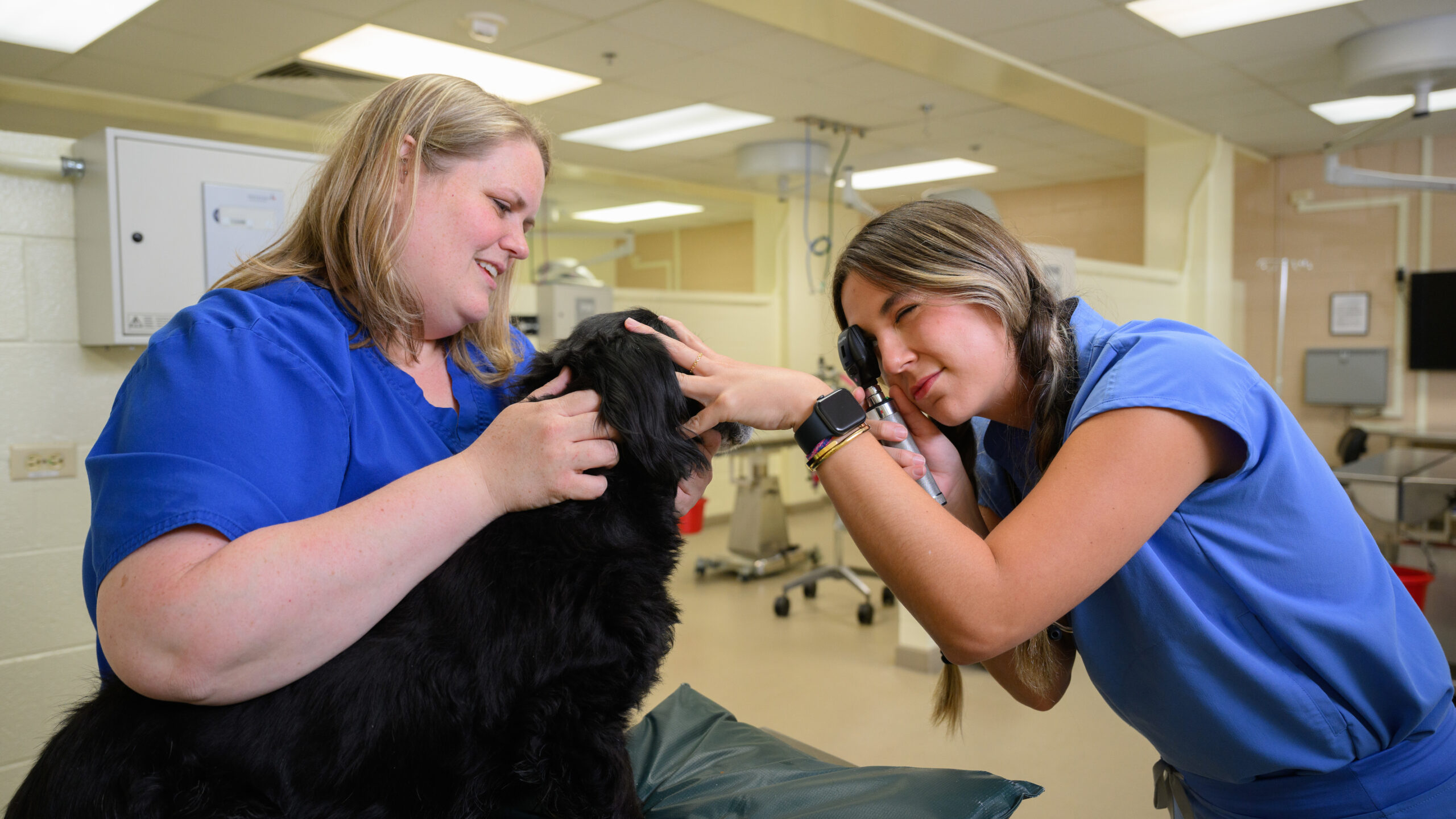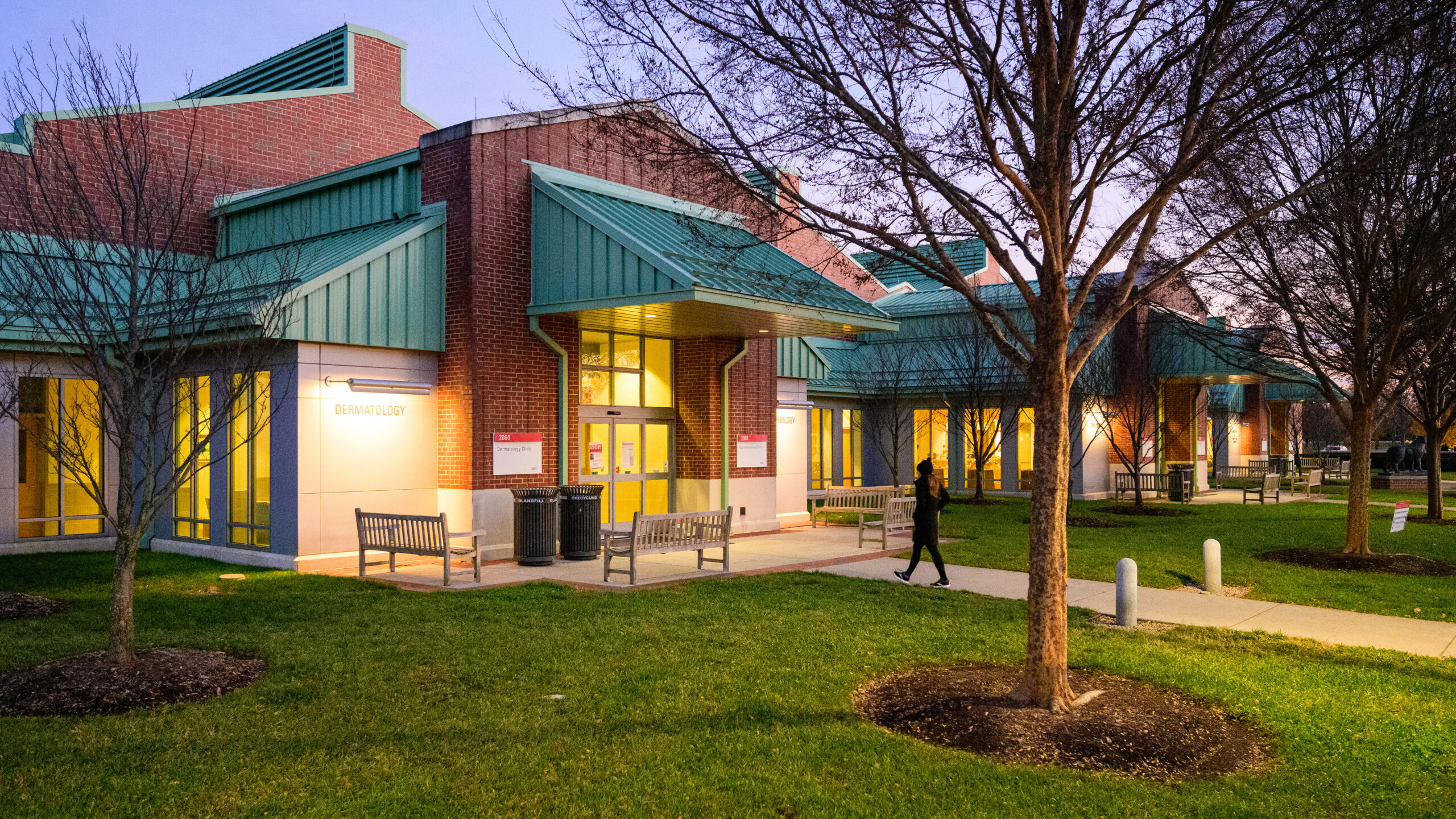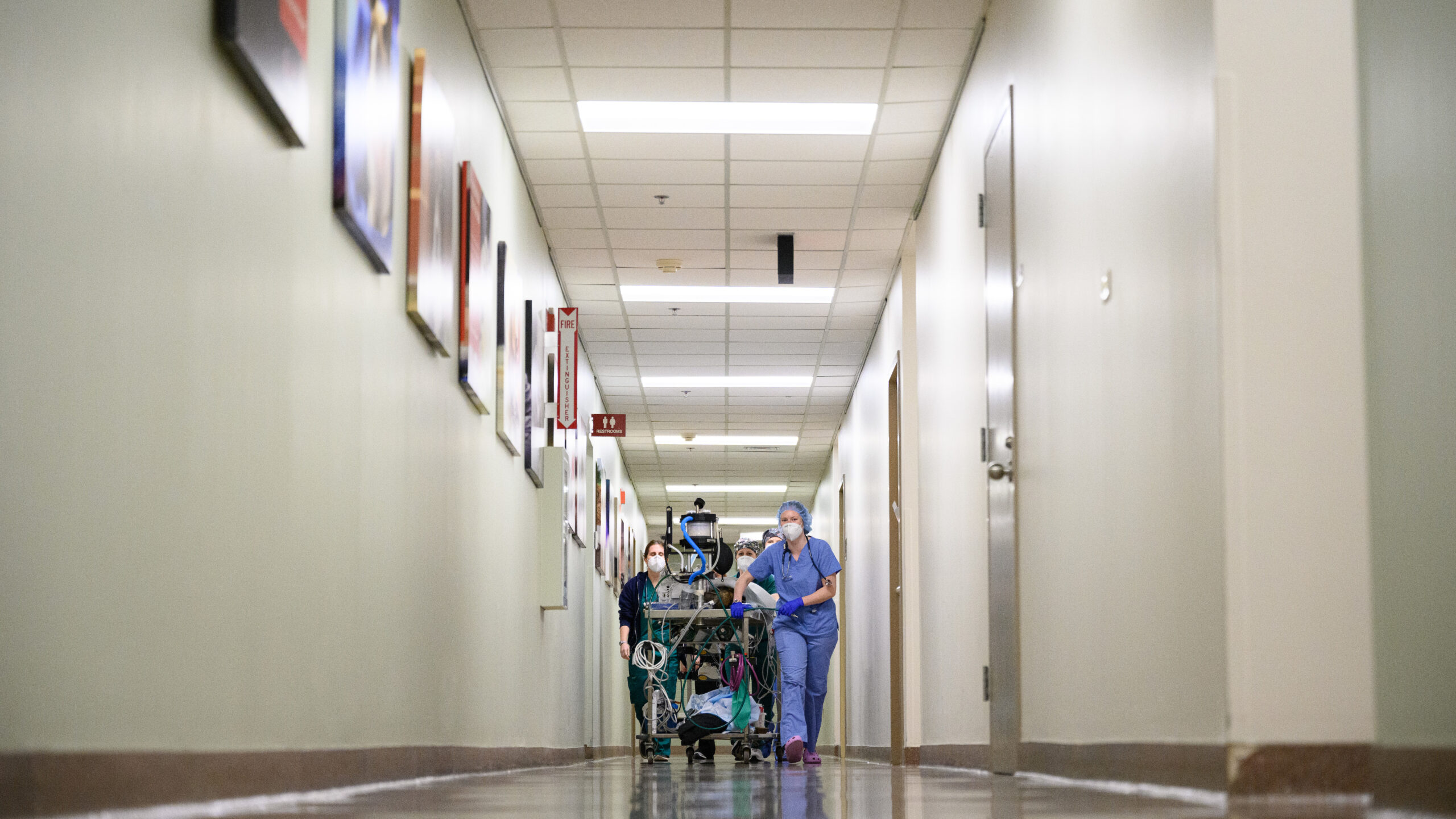Equine: Medicine
Our internal medicine specialists diagnose and treat horses with medical problems including cardiac, neurologic, respiratory, gastrointestinal, muscular, infectious, hematologic, renal and endocrine disorders.

Overview
The service is overseen by specialists with board certification in equine internal medicine and large animal internal medicine.
Contact Us
- Hours: Monday through Friday, 8 a.m to 5 p.m
- Phone: 919-513-6630
- Email: NCStateEquineMedicine@ncsu.edu
Our Specialties
There are many advanced medical problems we can manage and treat, but the following are some of the most common reasons patients visit Internal Medicine:
- Hyperkalemic periodic paralysis (a genetic muscle disease)
- Recurrent exertional rhabdomyolysis (a form of tying up)
- Polysaccharide storage myopathy (abnormal glycogen storage in the muscles, a form of tying up)
- Respiratory issues, including coughing, nasal discharge, or respiratory noise
- Diarrhea
- Urinary tract disease, including infection, abnormal frequency of urination, or abnormal appearance in urine color
- Neurological problems, (abnormal behavior, gait change, or paralysis)
- Weight loss or lack of appetite
- Exercise intolerance
- Chronic or recurrent colic
- Abnormal chewing or swallowing
- Fever
- Diseases of the neonatal and older foal
- Choking
- Head shaking
- Metabolic disease (Cushings disease)
- Muscle disease
CEM Quarantine
At our CEM Quarantine Facility, each horse is provided with a large stall, access to an outside paddock and is kept separate from other animals during the quarantine period. Learn more about CEM Quarantine services.
Appointments and Referrals
We operate primarily on a referral basis, with the patient’s primary veterinarian referring them to the NC State Equine Service by calling us to discuss the patient’s condition.
The equine medicine service receives elective cases routinely between 10AM -12PM weekdays and at other times by special arrangement. Please call between 8-5 weekdays for an estimate and appointment.
It is our goal to deliver the most complete service as efficiently as possible. The length of your visit is variable depending on your horse’s specific needs.
Give yourself plenty of time for the appointment. You are welcome to bring snacks/lunch and we have a coffee shop along with several vending machines.
Frequently Asked Questions
What if my horse needs to be hospitalized?
Should your visit require hospitalization, your horse will be monitored 24/7 by your primary faculty clinician, residents, veterinary technician staff, and senior veterinary students.
We encourage patient visits between the hours of 11 a.m. – 12:30 p.m. and 4-6:30 p.m. Just stop by the reception desk and a receptionist will page someone to meet you and take you back to your horse’s stall. If those times aren’t convenient for you, please let us know and we will make arrangements for you.
You can expect a call once daily from your veterinary team regarding your horse’s well-being unless other arrangements are made. You will be contacted as soon as possible if a problem arises.
What happens when my horse goes home?
At the end of your appointment or when you come to pick up your horse, you will go into the Large Animal Reception Desk where you will pay your bill and receive your discharge instructions. Once you have finished there you will proceed to the breezeway where you will meet up with someone from your veterinary team and go over your discharge sheet to be sure all questions are answered and that you have any medications you need. Now it is time to load up so you may pull your trailer into the breezeway.
How can I share information with my primary veterinarian?
We also understand that the care of your horse involves many people. If you have not been directly referred by a primary care veterinarian, please let us know if there is a veterinarian we need to provide information to regarding the treatment of your horse.
Resources
- American College of Veterinary Internal Medicine
- American Association of Equine Practitioners. This site has an excellent owner eduction section.
- American Board of Veterinary Practitioners
Additional resources may also be found at the NC State College of Veterinary Medicine’s website.


